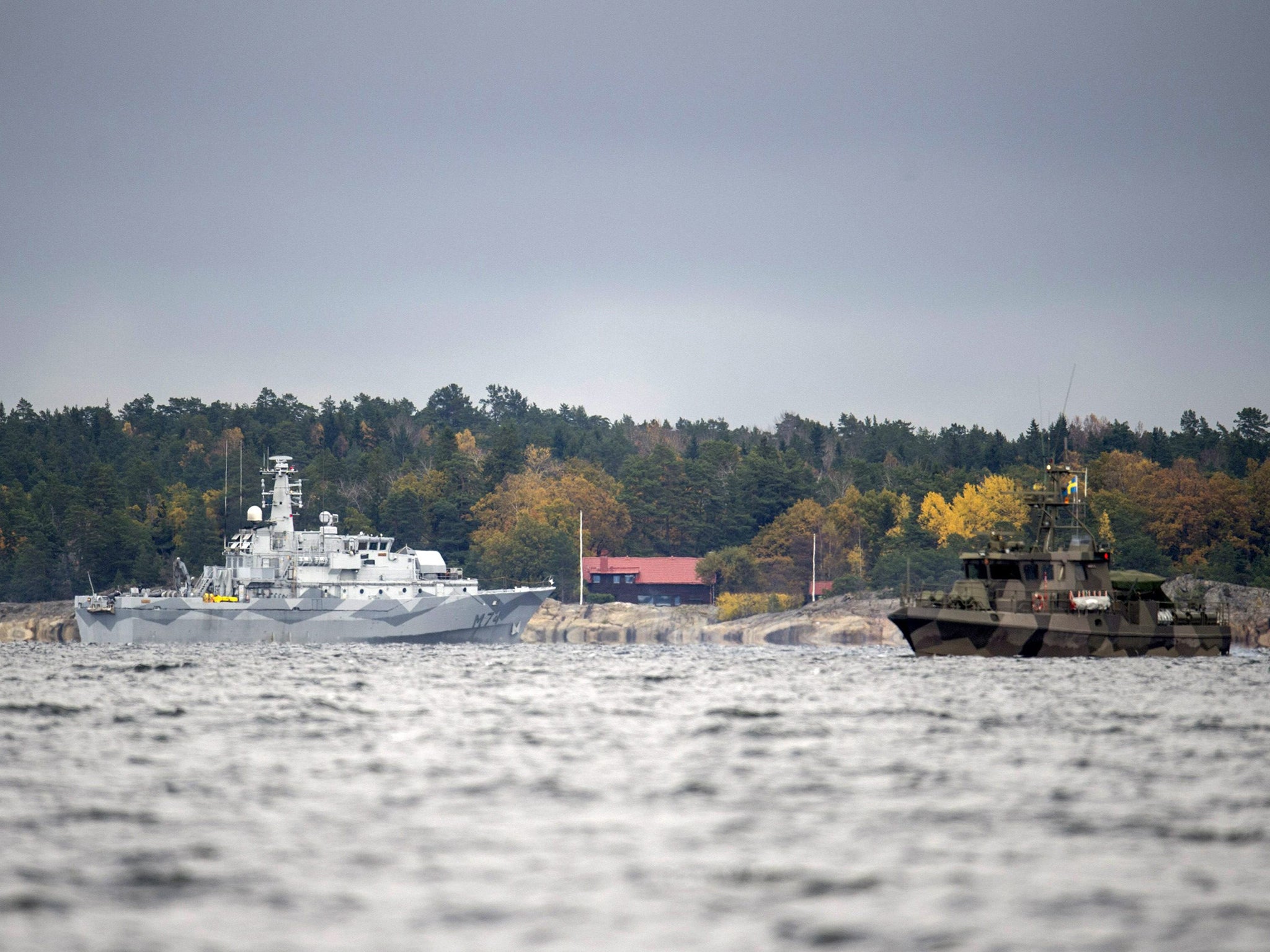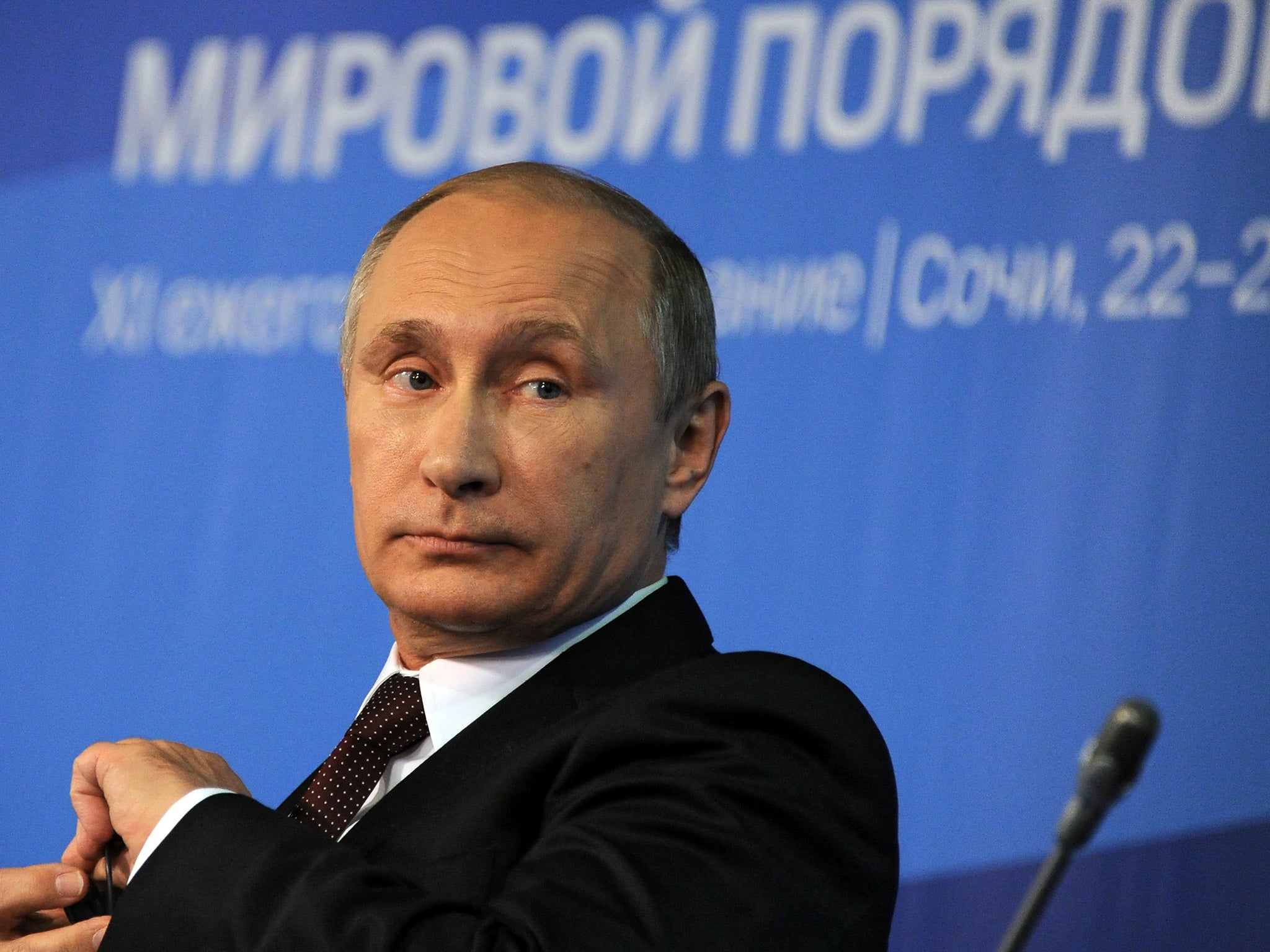What’s Putin’s war game? A Russian sub in Swedish waters has slipped away into the sea...leaving recriminations in its wake
Russia’s neighbours fear the suspected submarine in Swedish waters signals a turn to more assertive tactics by Putin

Your support helps us to tell the story
From reproductive rights to climate change to Big Tech, The Independent is on the ground when the story is developing. Whether it's investigating the financials of Elon Musk's pro-Trump PAC or producing our latest documentary, 'The A Word', which shines a light on the American women fighting for reproductive rights, we know how important it is to parse out the facts from the messaging.
At such a critical moment in US history, we need reporters on the ground. Your donation allows us to keep sending journalists to speak to both sides of the story.
The Independent is trusted by Americans across the entire political spectrum. And unlike many other quality news outlets, we choose not to lock Americans out of our reporting and analysis with paywalls. We believe quality journalism should be available to everyone, paid for by those who can afford it.
Your support makes all the difference.The dark shadow of what lies beneath; men in black sent onshore for secret missions; encrypted messages; echoes of sonar signals from the depths and, with it, echoes of the Cold War.
These were the tales surrounding a “Russian submarine” lurking in Swedish waters.
The vessel in the centre of the drama reportedly slipped away today into open seas after a week of frenetic activity by the government in Stockholm. A no-fly zone was established with searches involving 200 marines and sailors, fast boats, minesweepers, helicopters and threats of depth charges. It was, said an official keen to provide a sound-bite, “a hunt for reds in October”.
The “submarine” left in its wake questions, accusations and recriminations about the identity and motive of the intruder. There were, inevitably, comparisons with a John le Carré novel. The master chronicler of espionage has tended to end books with a triple-cross with the treacherous Americans as the villains; and there were plenty of people in Sweden who saw this as an attempt to bounce their new centre-left government towards joining Nato, or, at the very least, persuade it to increase the defence budget.
The Kremlin, however, blamed not the Pentagon but, to some surprise, the Dutch. “To remove tensions in the waters of the Baltic Sea and to save money of the Swedish taxpayers we would recommend that they turn to the naval command of the Netherlands for an explanation”, said an official in Moscow.

The Dutch, however, pointed out that while its diesel-electric submarine Bruinvis had been undertaking exercises last week near Stockholm, it was in a berth in Estonia before the first sighting of the mystery ship. Marloes Visser, a spokeswoman for the Royal Netherlands Navy, was perplexed: “It wasn’t one of our ships, you have to ask the Russians why they chose us for this”, she said.
The Swedish military privately stated that they had no doubt that the submarine was Moscow’s. Niklas Granholm, a senior analyst at the government’s Defence Research Agency, was adamant: “Who else could it be? Our Baltic neighbours don’t have the capability, neither do the Finns, Norway and Denmark.” He was not buying the theory of a hidden Nato hand: “Would the US want to do it, why? The UK? Certainly not: so you rule those out and it points in a certain direction”.
The reason for the deployment, held Mr Granholm, could be to map out the underwater terrain of the archipelago for places to hide “resources and assets” in case of a naval conflict in the Baltic. Swedish defence ministry spokeswoman Ingela Nilsson stressed the mobilisation was the biggest since the end of the Cold War. There was a need to be vigilant, she added, at a time of assertiveness by the Russian military.
The reason for the rhetoric is what had happened in Eastern Europe and the Baltic: the seizure of Crimea from Ukraine by the Kremlin, the establishment of the people’s republics of Donetsk and Lugansk; the massive exercises by Russian forces on its western borders; Nato’s decision to set up a 4,000 strong rapid reaction force and bases in former Warsaw Pact countries.
The former Soviet states in the Baltic have been increasingly vocal about their fear that they would be in Vladimir Putin’s sight after Ukraine. Moscow accuses the West of using this as an excuse to militarise its neighbours and has signalled it does not intend to back down. A few days after Barack Obama met the presidents of Estonia, Latvia and Lithuania in Tallinn last month, Russian agents seized an Estonian intelligence officer in his side of the border. Russians warplanes have been accused of violating Finnish airspace. As this week’s hunt for the submarine unfolded, Edgars Rinkevics, Latvia’s Foreign Minister, tweeted: “closely following events in the Swedish territorial waters, may become a game-changer of the security in the whole Baltic Sea region”.
However, some of the evidence presented of clandestine activities has already unravelled. A hazy image of a submarine purportedly Russian turned out to be a Swedish; one of the men in black behaving “highly suspiciously” near a Swedish military base, and who, according to the local media, may have been a members of the Spetznatz [ Russian special forces], turned out to be pensioner called Ove who had been following the pastime he had engaged in for decades, a spot of angling.
This is not the first time that a submarine scare had consumed Sweden; it was the 17th – all the previous ones also involving Russia – in the last half century. But, apart from a vessel which ran aground near Karlskrona in 1981, not a single one had been found.
What these sightings portend has become a part of national culture: a satirical Finnish work Probable Submarine, sought to portray the effect of the repeated claims of underwater interlopers on the Swedish national psyche.
Most of those living on the islands of the Stockholm archipelago who spoke to the media were sanguine about the latest incident. “We have grown up hearing about these submarines, we have theses excitements from time to time, but it hasn’t changed anyone’s life, it’s a kind of game with the Russians”, said Katerina Lindvaal, a 31 year old dentist.
For the fisherman Lennard Lundqvist, “the Russians are not the trouble; it’s the navy: they stop me from setting my nets. In the past they would come here and drop depth charges. They got minks and herrings, but no submarines.” Navy spokeswoman Ms Nilsson acknowledged: “No normal person thinks the Russians will invade us tomorrow; people are more concerned about Ebola.”
The submarine hunt will not lead to any immediate change in Sweden’s stance on Nato; the new Prime Minister, Stefan Lofven, pointed out that the public was against joining the alliance. However, the chairman of the parliamentary defence committee, Allan Widman, has stated that his committee will recommend raising the defence budget: his party, the Liberals, cut defence spending while part of a former coalition government.
Join our commenting forum
Join thought-provoking conversations, follow other Independent readers and see their replies
Comments